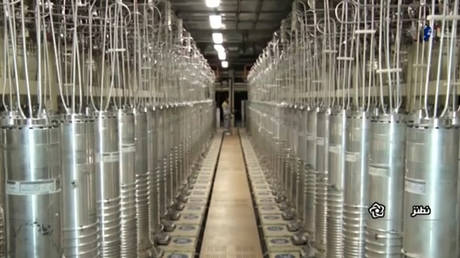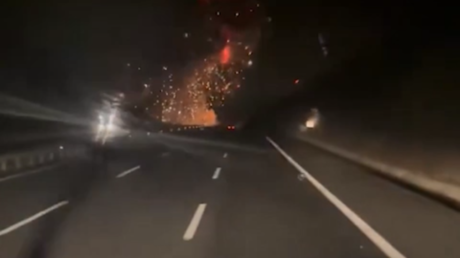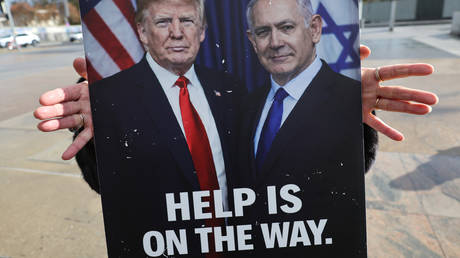
Tehran must obtain firm guarantees from the West that the nuclear agreement will not be abandoned again, Iran’s parliament said
Iran’s parliament has laid out six conditions for the country to return to the landmark 2015 nuclear deal in an open letter to President Ebrahim Raisi, published in Iranian media on Sunday. An overwhelming majority of MPs supported the statement, with 250 out of 290 parliamentarians signing the letter.
The US, as well as the European signatories of the deal, officially known as the Joint Comprehensive Plan of Action (JCPOA), must provide guarantees that they will not abandon the agreement again should it be revived, the MPs said. They must also guarantee that no “snapback mechanisms,” which can re-enable sanctions immediately, will be activated.
“We have to learn a lesson from past experiences and put a red line on the national interest by not committing to any agreement without obtaining necessary guarantees first,” the parliamentarians said.
Other conditions include the lifting of all sanctions on Iran in full, including restrictions related to the JCPOA directly, as well as what the letter described as those imposed under “false pretexts” of terrorism, human rights abuses, and in relation to the country’s missile program. Tehran itself should also make sure it receives the economic benefits it is promised under the deal, and actually begins to receive profits from exports before returning to compliance with the restrictions outlined in the agreement, the lawmakers added.
The statement comes as the multinational talks, which have been underway in the Austrian capital, Vienna since April last year, seem to be coming to fruition. The painstaking negotiations have been interrupted multiple times by long pauses, with participants repeatedly expressing frustration over the lack of progress. Earlier this week, Tehran’s top negotiator, Ali Bagheri, said the deal was “closer than ever” – warning, however, against celebrating too soon, since “nothing is agreed until everything is agreed.”
The JCPOA, under which Tehran agreed to drastically curb its nuclear program (while it maintains that it never sought to obtain atomic weaponry) in exchange for the lifting of international sanctions, has been in limbo since 2018, when then-US President Donald Trump unilaterally withdrew the United States from the deal. Describing the agreement as the “the worst deal ever,” Trump accused Tehran of violating “the spirit” of the JCPOA, while international observers had repeatedly confirmed Iran’s compliance.
Following the withdrawal, Washington revived old sanctions and imposed new restrictions on Tehran. In retaliation, Iran has gradually suspended its JCPOA commitments, installing new uranium-enriching equipment and ramping up its nuclear program. Earlier this month, the US lifted some of its sanctions against Tehran, enabling foreign companies to partake in certain civilian projects at Iran’s Bushehr Nuclear Power Plant and other facilities. The move was widely perceived as an attempt to show goodwill and revitalize the stalled Vienna talks.




